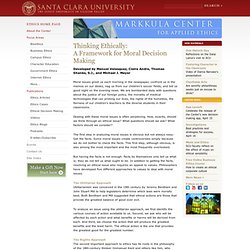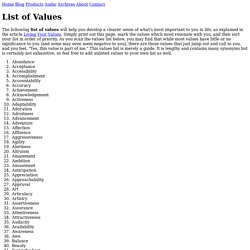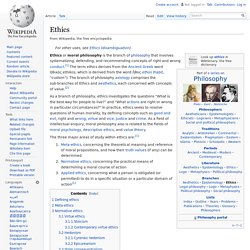

Thinking Ethically: A Framework for Moral Decision Making. Thinking Ethically: A Framework for Moral Decision Making Developed by Manuel Velasquez, Claire Andre, Thomas Shanks, S.J., and Michael J.

Meyer Moral issues greet us each morning in the newspaper, confront us in the memos on our desks, nag us from our children's soccer fields, and bid us good night on the evening news. We are bombarded daily with questions about the justice of our foreign policy, the morality of medical technologies that can prolong our lives, the rights of the homeless, the fairness of our children's teachers to the diverse students in their classrooms. Dealing with these moral issues is often perplexing. The first step in analyzing moral issues is obvious but not always easy: Get the facts. But having the facts is not enough. The Utilitarian Approach Utilitarianism was conceived in the 19th century by Jeremy Bentham and John Stuart Mill to help legislators determine which laws were morally best.
This article appeared originally in Issues in Ethics V7 N1 (Winter 1996) List of Values. The following list of values will help you develop a clearer sense of what's most important to you in life, as explained in the article Living Your Values.

Simply print out this page, mark the values which most resonate with you, and then sort your list in order of priority. As you scan the values list below, you may find that while most values have little or no significance to you (and some may even seem negative to you), there are those values that just jump out and call to you, and you feel, "Yes, this value is part of me. " This values list is merely a guide. It is lengthy and contains many synonyms but is certainly not exhaustive, so feel free to add unlisted values to your own list as well. Steve RecommendsHere are my recommendations for products and services I've reviewed that can improve your results.
Site Build It! Justice: What's the Right Thing to Do? Ethics. The three major areas of study within ethics are:[1] Meta-ethics, concerning the theoretical meaning and reference of moral propositions, and how their truth values (if any) can be determinedNormative ethics, concerning the practical means of determining a moral course of actionApplied ethics, concerning what a person is obligated (or permitted) to do in a specific situation or a particular domain of action[1] Defining ethics[edit] The word "ethics" in English refers to several things.[6] It can refer to philosophical ethics—a project that attempts to use reason in order to answer various kinds of ethical questions.

[citation needed] It can also be used to describe a particular person's own, idiosyncratic principles or habits.[7] For example: "Joe has good ethics. " [edit] Main article: Meta-ethics Meta-ethics has always accompanied philosophical ethics. The ontology of ethics is about value-bearing things or properties, i.e. the kind of things or stuff referred to by ethical propositions.